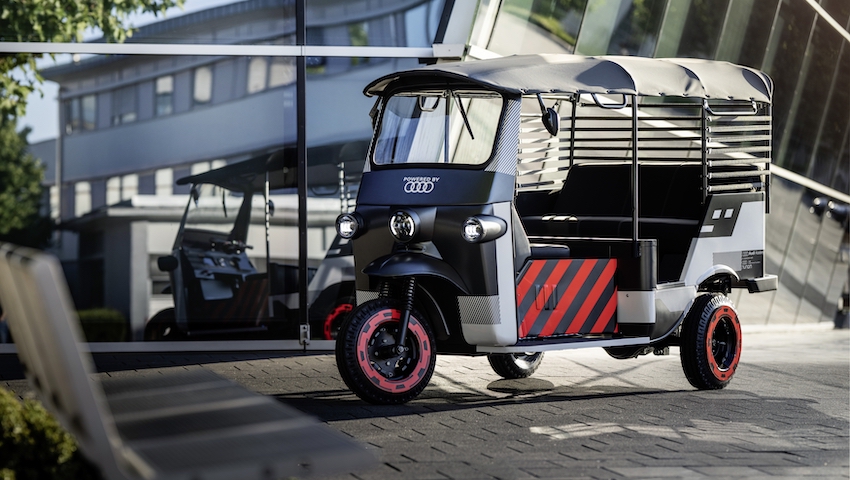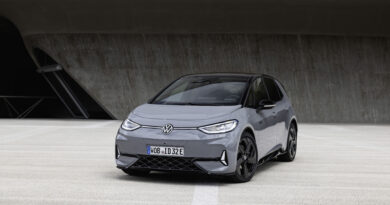Audi e-tron battery modules to power electric rickshaws in India
Audi is to reuse batteries from its e-tron test vehicles to power and electrify three ‘e-rickshaws’ in India.
The German–Indian start-up Nunam is bringing three electric rickshaws to the roads of India, with the new electric vehicles to be powered by used batteries taken from test vehicles in the Audi e-tron test fleet.
The aim of the project is to explore how modules made with high-voltage batteries can be reused after their car life cycle and become a viable second-life use case. The project also aims to strengthen job opportunities for women in India in particular, who will be able to use the vehicles to transport their goods to market for sale, all without the need for intermediaries.
Based in Berlin and Bangalore, the non-profit start-up is funded by the Audi Environmental Foundation. Nunam developed the three prototypes in collaboration with the training team at Audi’s Neckarsulm site, which in turn benefits from the intensive intercultural exchange. This is the first joint project between both AUDI AG and the Audi Environmental Foundation in addition to Nunam.
The e-rickshaws powered by second-life batteries are scheduled to hit the roads in India for the first time in a pilot project in early 2023. They will be made available to a non-profit organization.
Nunam cofounder Prodip Chatterjee said: “The old batteries are still extremely powerful. When used appropriately, second-life batteries can have a huge impact, helping people in challenging life situations earn an income and gain economic independence – everything in a sustainable way.
“Car batteries are designed to last the life of the car. But even after their initial use in a vehicle, they still have a lot of their power. For vehicles with lower range and power requirements, as well as lower overall weight, they are extremely promising. In our second-life project, we reuse batteries from electric cars in electric vehicles; you might call it electric mobility ‘lite’. In this way, we’re trying to find out how much power the batteries can still provide in this demanding use case.
The rickshaw drivers will charge their vehicles primarily with public grid electricity, which has a high proportion of coal-fired power in India. The e-rickshaws charge using power from solar charging stations. The solar panels are located on the roofs of the local partner’s premises. During the day, sunlight charges an e-tron battery, which acts a buffer storage unit and in the evening, the power is passed on to the rickshaws.
Audi Environmental Foundation Director Rüdiger Recknagel said: “Initiatives like the one pioneered by Nunam are needed to find new use cases for e-waste. Not only in India, but worldwide. So Nunam shares its knowledge to motivate more initiatives to develop products with second-life components that can drive the eco-social revolution forward.”
Moreover, after the battery has spent its first life in an Audi e-tron and its second in an e-rickshaw, the batteries’ remaining power might be used for stationary applications such as LED lighting. “We want to get everything possible out of each battery before recycling,” said cofounder Prodip Chatterjee.
In the long term, electric mobility and solar energy can help reduce India’s dependence on fossil fuels such as coal, reduce the huge volume of exhaust emissions on India’s roads, and provide people with a reliable power supply. Rüdiger Recknagel commented: “In many ways, this project is pointing the way forward.”






